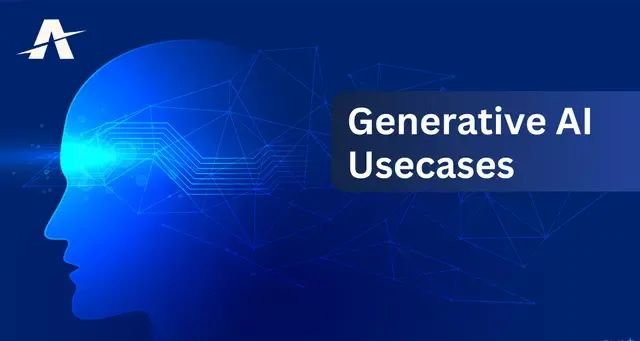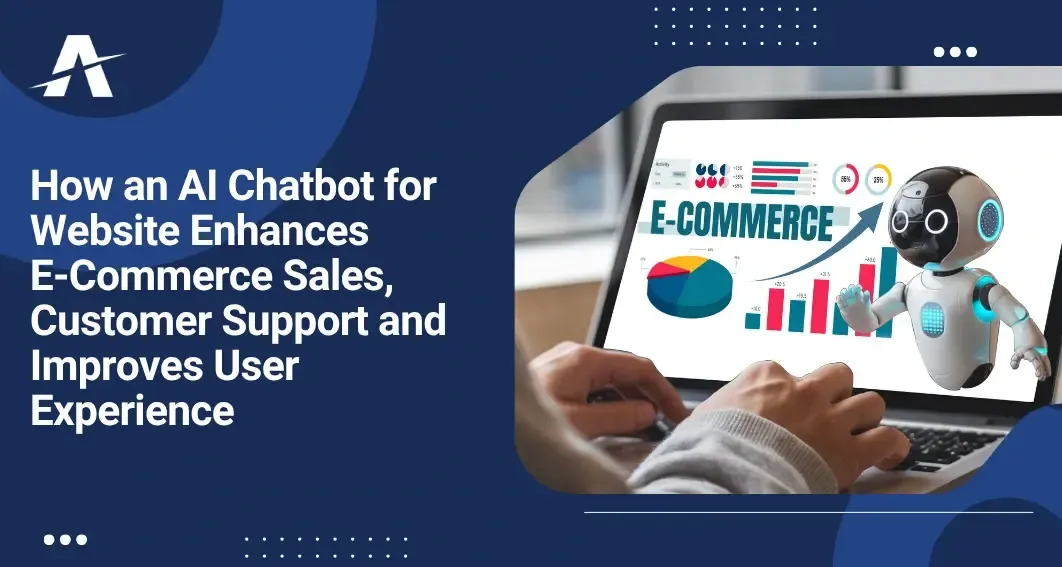
The e-commerce industry is booming, and with it come growing customer expectations. Today’s online shoppers want instant support, personalized experiences, and hassle-free service. That’s where an AI chatbot for websites becomes a game-changer.
By integrating an AI chatbot into your e-commerce website, you can boost sales, offer 24/7 customer support, and enhance the overall user experience. In this blog, we’ll dive into how AI chatbots are transforming online shopping and why every e-commerce business should embrace this smart technology.
What is an AI Chatbot for a Website?
An AI chatbot is an intelligent virtual assistant that uses artificial intelligence (AI) and natural language processing (NLP) to simulate real-time human conversations. When embedded into an e-commerce website, the chatbot interacts with visitors, answers their questions, recommends products, assists with checkout, and even collects feedback.
Unlike live agents, AI chatbots work around the clock, scale with demand, and never get tired, making them perfect for today’s fast-moving digital stores.
1. Enhancing E-Commerce Sales with AI Chatbots
a. Product Recommendations
AI chatbots can track user behavior, analyze preferences, and offer smart product suggestions in real-time. Whether it’s showing similar items, upselling premium options, or cross-selling complementary products, chatbots can guide users to make faster, more informed purchase decisions.
Example: A user looking at running shoes might get recommendations for sports socks, gym bags, or fitness trackers.
b. Reducing Cart Abandonment
Cart abandonment is a major challenge in e-commerce. AI chatbots can intervene by:
Reminding users of items left in their cart
Offering instant support for any hesitation or issues
Providing discount codes or limited-time offers
This proactive communication can recover lost sales and improve conversion rates.
c. 24/7 Lead Capture
Even when your sales team is offline, the chatbot continues working. It can:
Collect user contact details
Qualify leads based on questions
Schedule follow-up emails or calls
2. Transforming Customer Support
a. Instant Answers to FAQs
Instead of waiting for an email reply or being on hold, users can ask the chatbot:
“Where’s my order?”
“What’s your return policy?”
“How do I track my shipment?”
With access to your backend systems or help docs, the chatbot provides instant, accurate answers, improving customer satisfaction.
b. Order Tracking and Updates
AI chatbots can integrate with order management systems to provide real-time shipping updates, estimated delivery times, and support for returns or cancellations, all within the chat interface.
This level of convenience significantly reduces support tickets and boosts trust in your brand.
c. Multilingual Support
Selling to a global audience? AI chatbots can interact in multiple languages, breaking down language barriers and helping users feel more comfortable during their buying journey.
3. Improving Overall User Experience (UX)
a. Guided Navigation
Many users land on e-commerce websites without a clear idea of what they want. AI chatbots can help by:
Asking a few questions to understand the user’s needs
Directing them to the right product categories or offers
Suggesting filters for better search results
This makes site navigation faster and more intuitive
b. Personalized Engagement
AI chatbots can greet returning customers by name, show them items based on past purchases, and even offer personalized deals, creating a sense of VIP treatment that increases loyalty.
c. Faster Resolutions = Happier Customers
Speed matters. A fast, intelligent chatbot ensures:
Immediate assistance
Reduced wait times
Quick resolutions
4. Real-Time Data Collection and Insights
Every interaction with a chatbot generates valuable data:
What users are looking for
Where they drop off
Common product issues
Popular questions or complaints
This data can help you:
Improve product pages
Optimize the checkout process
Refine marketing campaigns
Launch better-targeted promotions
5. Cost Savings and Business Efficiency
Running a 24/7 customer support team can be expensive. AI chatbots can handle:
Thousands of conversations are simultaneously
60–80% of common queries
Lead generation and nurturing
Key Benefits at a Glance
| Benefit | Description |
|---|---|
| 24/7 Support | Assist customers anytime, globally |
| Instant Response | No waiting time for common questions |
| Increased Sales | Personalized offers and recommendations |
| Higher Conversions | Recover abandoned carts, qualify leads |
| Better Engagement | Human-like conversations build trust |
| Smart Insights | Improve based on user behavior and feedback |
| Cost Savings | Fewer support staff are needed |
Choosing the Right AI Chatbot for Your E-Commerce Website
When selecting a chatbot, ensure it offers:
E-commerce integration (with platforms like Shopify, WooCommerce, Magento)
Live chat fallback to human agents when needed
Custom branding for a seamless look
Analytics dashboard to monitor performance
Multichannel support (web, WhatsApp, Messenger, etc.)
Secure payment integration (optional, for conversational checkout)
Future of AI Chatbots in E-Commerce
AI chatbots are evolving rapidly. Future capabilities include:
Voice-based shopping assistants
AR/VR integration for virtual try-ons
Emotion detection for better interaction
Predictive selling using past data
As these features become more common, chatbots will evolve from simple support tools into powerful sales and marketing assets.
Adding an AI chatbot to your website isn’t just a tech upgrade; it’s a smart way to boost sales, improve customer support, and create a smoother experience for your users.
With e-commerce growing more competitive, businesses that use AI to engage customers, offer instant help, and drive smarter sales will stand out and earn lasting customer loyalty.
Frequently Asked Questions (FAQs)
1. What is an AI chatbot for e-commerce websites?
An AI chatbot for e-commerce websites is a smart virtual assistant that uses artificial intelligence and machine learning to interact with customers in real-time. It helps answer questions, guide users, suggest products, and provide instant support.
2. How does an AI chatbot improve customer support?
AI chatbots provide 24/7 customer support, instantly answering common queries about orders, shipping, returns, and product details. This reduces wait times and enhances customer satisfaction by providing quick, reliable assistance anytime.
3. Can an AI chatbot increase e-commerce sales?
Yes, AI chatbots can significantly boost sales by engaging customers proactively, recommending products based on browsing behavior, offering discounts or upsells, and reducing cart abandonment through timely reminders and support.
4. How do AI chatbots enhance the user experience on websites?
AI chatbots create a smoother and more personalized browsing experience. They help customers find products quickly, offer guided shopping, and resolve issues without needing human intervention—making the overall experience faster and more enjoyable.
5. Are AI chatbots better than live chat agents?
AI chatbots are ideal for handling routine queries at scale and outside business hours, while live agents are better for complex or emotional issues. A hybrid approach combining both ensures optimal support coverage.
6. Can chatbots be customized for my online store’s needs?
Yes, modern AI chatbot platforms allow full customization. You can tailor the chatbot’s tone, language, workflows, product recommendations, and more to align with your brand and customer journey.
7. Will a chatbot slow down my website?
No. AI chatbots are designed to be lightweight and optimized for performance. When properly integrated, they operate seamlessly without affecting your website’s speed or user experience.
8. Do AI chatbots work on mobile devices?
Absolutely. AI chatbots are responsive and work across all devices, including smartphones and tablets, ensuring customers can interact with your store on the go.
9. Is it hard to integrate a chatbot into my existing website or store platform?
Not at all. Many chatbot solutions offer easy integration with popular e-commerce platforms like Shopify, WooCommerce, Magento, and BigCommerce. Most setups require minimal technical skills.
10. How can I measure the success of an AI chatbot on my website?
You can track key metrics such as chat engagement rate, conversion rate, average resolution time, customer satisfaction (CSAT) score, and sales generated through chatbot interactions to measure its performance.












